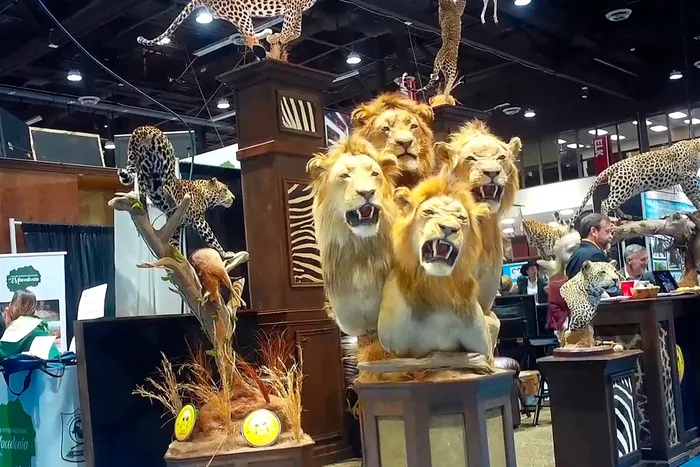
A study from North-West University revealed that hunting tourism, both domestic and international, contributes $2.5 billion annually to South Africa’s economy and supports about 95 000 jobs.
Image: File/AP
IN the global debate over ethical travel and wildlife conservation, one industry in South Africa is quietly propping up some rural economies: hunting tourism.
A study from North-West University (NWU) revealed that hunting tourism, both domestic and international, contributes a jaw-dropping $2.5 billion (about R44bn) annually to South Africa’s economy and supports about 95 000 jobs, many in communities where unemployment is rampant and opportunities are scarce.
The research, titled *Assessing the contributions of hunting tourism to the South African economy: a post-Covid analysis*, was led by Professors Peet van der Merwe and Andrea Saayman. Bertie Jacobs, a communication specialist at NWU, provided an assessment of the sector’s economic and ecological impact.
“Hunting tourism isn’t glamorous, but it’s real. It’s not about luxury lodges or Instagrammable safaris, it’s about survival, jobs, and conservation,” Jacobs said. “In a country where unemployment stands at 32.9%, this industry is a lifeline for thousands of low-skilled workers.”
The research found that local hunters, largely middle-aged men from provinces such as Gauteng — contributed about $718 million annually, with each spending an average of $3 594 per hunting season. International hunters, mostly wealthy retirees from the United States, would spend an average of $32 663 per trip, funneling $169 million into the economy annually.
“These aren’t just one-off transactions,” Jacobs said. “This is a multiplier effect. For every dollar spent on hunting, another $1.97 is generated across agriculture, transport, hospitality, and personal services.”
Using a social accounting matrix (SAM), the researchers calculated a production multiplier of 2.97, underscoring how deeply hunting tourism is embedded in the national economy.
About 95 000 jobs are linked to hunting tourism. Over 60% of these roles are low-skilled, including positions such as trackers, farm hands, and cleaners — jobs that are often the only formal employment available in rural provinces like Limpopo. “These are not high-paying jobs, but they are real jobs in a country where youth unemployment is in the stratosphere,” Jacobs said. “Without hunting tourism, many of these people would be without income.”
The study, surprisingly, showed that South Africa’s wildlife population on private land now exceeds that in national parks. Much of this growth is tied to the conversion of struggling livestock farms into private game reserves, many of which rely on regulated hunting to remain economically viable. “Private landowners are not altruists, they’re businesspeople,” Jacobs said. “If they can’t make money from wildlife, they’ll go back to cattle or crops. And that means habitat loss, biodiversity decline, and more land degradation.”
The researchers argued that regulated hunting creates financial incentives for landowners to protect and breed wild species, which in turn fuels rewilding and conservation efforts.
In the wake of the global pandemic, while traditional tourism sectors floundered, hunting tourism not only rebounded — it thrived. “Hunting tourism is resilient. It’s exclusive, it’s immersive, and it’s not dependent on mass tourism trends,” Jacobs said. “It’s a niche that South Africa owns, and it’s paying dividends.”
The industry is not without controversy. Many animal rights advocates condemn trophy hunting as unethical and exploitative. But the study does not shy away from these concerns. “We’re not saying hunting is for everyone,” Jacobs said. “We’re saying that policy must be grounded in economic reality, not just ideology. Missteps could jeopardise both wildlife and livelihoods.”
The research calls for measured, science-based regulation that would balance conservation, ethics, and economic survival.
As South Africa grapples with poverty, unemployment, and environmental degradation, the hunting tourism industry offers a paradoxical but potent solution. “It may not be everyone’s idea of sustainable development,” Jacobs said. “But in rural South Africa, it’s delivering where others have failed. It’s feeding families, protecting wildlife, and keeping communities alive.”
In a world obsessed with green growth and ethical tourism, the rifle may be a more unexpected ally than critics care to admit.